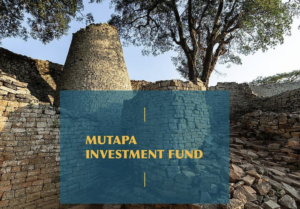VOICE OF DISSENT SILENCED: JACOB NGARIVHUME’S SENTENCING SPARKS OUTCRY

In a striking blow to free speech and peaceful assembly, opposition luminary Jacob Ngarivhume faces a 48-month incarceration, with a quarter of the term suspended, for his role in a non-violent protest against corruption and socio-economic rights violations in Zimbabwe. This decision, underscoring a rising onslaught against dissenting voices, has sent shockwaves across human rights circles and beyond.
Ngarivhume, known for his vocal opposition and advocacy, organized a peaceful demonstration in July 2020, focusing on rampant corruption and the deprivation of socio-economic rights in Zimbabwe. Astonishingly, his efforts to exercise constitutional rights have now culminated in a severe penal consequence. The right to free speech and peaceful assembly is not only a fundamental human right but also a cornerstone of Zimbabwe’s constitution. The jarring reality of Ngarivhume’s sentence for such lawful activities is a sobering testament to the current state of democracy in the nation.
Vongai Chikwanda, acting Deputy Director for Southern Africa at Amnesty International, has expressed deep concern over this development. The sentencing is perceived as a manipulative tactic to suppress opposition, leveraging the judicial system as a means of intimidation and quashing dissent. This pattern of targeting opposition leaders, human rights advocates, activists, and journalists is alarmingly indicative of the misuse of legal systems for political gains.
This conviction paints a troubling picture of the suppression of dissenting voices in Zimbabwe. The charges against Ngarivhume are a clear indication of the lengths to which authorities will go to silence opposition. This case is a stark illustration of the democratic erosion occurring in the country, where fundamental freedoms, including expression and assembly, are brutally curtailed.
The severity of the sentence meted out to Ngarivhume serves as a chilling reminder of the high cost of challenging corruption and injustice. Utilizing state power to silence opposition voices poses a significant threat to the fabric of democracy in Zimbabwe. Amnesty International’s call for the quashing of this sentence resonates as a demand for justice, the upholding of freedom of expression, and the respect of individual rights.
Such manipulation of legal systems to punish opposition voices starkly betrays democratic principles. It underscores the need for unwavering vigilance against the abuse of power, particularly when employed to silence those who expose corruption and demand justice.
This situation rings as a pressing alarm for international observers and allies of democracy to scrutinize the Zimbabwean government’s practices more closely. These practices reveal a disconcerting disregard for basic human rights, notably freedom of expression and peaceful assembly, critical for fostering transparency and accountability.
Jacob Ngarivhume’s conviction and sentencing are emblematic of a broader, escalating crackdown on opposition figures, human rights defenders, and critical voices in Zimbabwe. It serves as a grim reminder of the extreme measures authorities are prepared to take to mute those who dare to voice out against corruption and injustice. This development calls for urgent action from both local and international bodies to safeguard fundamental human rights and uphold democratic values in the face of such blatant transgressions.



